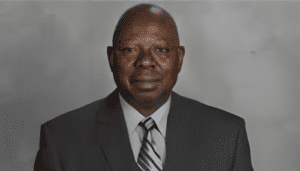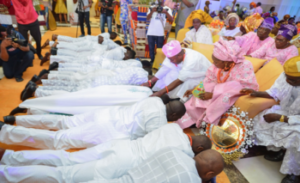
Oriki: An invaluable cultural heritage and disappearing art form
By Yekeen Olawale Wakeel
One of the major traits of being a Yoruba born is Oriki, which simply means Eulogy. Oriki is a poetry praise that connects a Yoruba born individual with his/her ancestors.
Oriki is so strong and spiritual that it has an effect on the emotion and the behaviour of an individual when it is being uttered or sung in the form of a song to the fellow. Oriki is a must for every child born by a Yoruba person either home and abroad. Every individual has his oriki, eulogy.
Oriki is important for every mother giving birth to a child, because it is sung in the form of a song to a crying child, and upon hearing the Oriki, the child would be calm and would stop crying.
It is such a deep connection that creates a special bond between a child and the parents, particularly the mother. Oriki is almost magical on every individual, because it is a special connection of lineage and its effects are still as potent as it used to be in the past.
Oriki varies in length depending on lineage and the clan of the individual and the past ancestors. In fact, as one could understand that the Yoruba nation is a civilised nation and has varieties in every part of its culture and tradition, so is the Oriki. Oriki varies and it is based on each family lineage and ancestral clan, which talks about the bravery act and the pedigree of their ancestors.
As an individual has eulogy, so does every village, town and empire in Yoruba nation. Some Oriki can be in the form of a name, and some are used as a surname. However, most Oriki that are in the form of names are cropped out from the long Oriki of the individual or clan.
Therefore, Oriki is the combination of the heroic act or the ancestors of an individual and it is also a means to remind an individual of the clan and lineage that the person came from and its pedigree.
The importance of Oriki to the Yoruba has not diminished from ancient days. It is a means of honouring a person being addressed. It can stand on its own or tell a person’s history; it can also tell the truth about someone’s personality and describe physical appearance.
Oriki, can otherwise be seen as a praise poem, is a Yoruba verbal art form. It exists across the Yoruba cultural spectrum. It includes special oriki for children born with certain characteristics.
Examples are Ige, a child who came out with the feet at childbirth; Taiwo and Kehinde, who are twins; Aina, a female child born with the umbilical cord wrapped around her neck; and Ojo, if a male child.
All these children have their specific oriki. Every Yoruba family has its own oriki too and it is this form that is most endangered. While oriki is often generically called praise poetry, some of it is hardly flattering, but it encodes the ancestral identity of a lineage, and what the members of that lineage share in common.
Oriki is an intangible cultural heritage. UNESCO sees it as an intangible cultural heritage including folklores, customs, beliefs, traditions, knowledge, and language, which are part of a people’s or community’s cultural heritage. It is intellectual wealth.
Women have long been the inventors, performers and transmitters of this great poetic art form within the family. As new brides, women were required to memorise the long oriki of their husbands’ lineages, and they too made their own additions to this during their lifetimes as participants-observers in these families. It is an intergenerationally-layered and dynamic art form.
Oriki tells us about the history and achievements of a lineage, their gods and goddesses, their trade and avocation, their behaviour, talents, shortcomings, challenges, and aspirations.
Everyone born into a lineage is entitled to the oriki of that lineage. Its disappearance is steady because women no longer learn it when they become wives, and Western-educated women in particular have long stopped making this a part of their wifely responsibility.
For women who learn it, they no longer use it as frequently as the generations before them, because the conditions of living are constantly changing. City people would occasionally hear it when they visit their ancestral villages and towns for festivals and ceremonies.
For example, our situation may not be as dire as that of the Yagan tribe for instance, whose descendants are now all socialised into the Spanish language, there is need to learn from these people who used modern technology to preserve their language. The individual and family oriki needs to be documented.
It is a cultural heritage which we should not allow to perish because we are clamouring after “modern” ways, which usually means adopting the beliefs and norms, who work hard to preserve their heritage through writing, films, cultural festivals and in the many ways that modern technology allows the imagination to flourish.
Oriki, often defined as a praise poem, is a Yoruba verbal art form. It exists across the Yoruba cultural spectrum. It includes special oriki for children born with certain characteristics.
Even if we feel we don’t need to know our oriki, it is not fair to deprive younger generations of this beautiful cultural asset. We should allow them to decide what they want to do with it. What we can do is to record it with the help of those who know it, when they are still alive.
We can translate it and preserve it through our many technological devices, and then transfer it to the younger people in our families, wherever they may live in the world. What they will do with it is up to them.
The creatives and the seekers among them may find it very useful. Identity has become even more important with modernity, as the sands are constantly shifting. Oriki could only help those after us.
Yekeen Olawale Wakeel is the Chief Museum Education Officer, National Museum, Ile-Ife.




